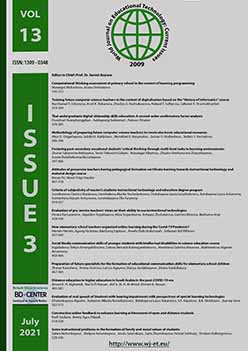Fostering post-secondary vocational students’ critical thinking through multi-level tasks in learning environments
Fostering post-secondary vocational students’ critical thinking through multi-level tasks in learning environments
Author(s): Zhanar Sabyrovna Bekbayeva, Temir Tlekovich Galiyev, Nazymgul Albytova, Zhazira Meirhanovna ZhazykbayevaSubject(s): Education, Vocational Education
Published by: Birlesik Dunya Yenilik Arastirma ve Yayincilik Merkezi
Keywords: Education; higher-order thinking; reflective thinking; vocational students;
Summary/Abstract: In today’s labour market, being competitive requires, in addition to technical skills, several twenty-first-century career competencies, including the capacity to think critically. Although the literature on teaching methods designed for enhancing students’ reflective thinking abounds, the contribution of special tasks with varying complexity to learners’ critical thinking capacity, to our knowledge, has not been earlier investigated. Hence, the present investigation sought to investigate the effect of multi-level critical thinking activities introduced into classes on the critical thinking level of post-secondary vocational students. This cross-sectional study employed the Starkey Critical Thinking Test adapted for the Russian-speaking population in order to measure critical thinking level in a sample (n = 218) of vocational students. Results showed that among students whose classes were complemented by critical thinking tasks, almost half of subjects with low and test scores eventually shifted to a medium scoring cohort. Eleven learners who were medium scorers at the beginning gained high-level results at the end point. Meanwhile, only a small percentage of those no-treatment participants with initially low performance on the critical thinking test eventually moved into the medium level, as well as from the latter into a high achievement category. The independent two-tailed t-test revealed a significant difference between posttest scores observed in control and intervention groups. It can be therefore suggested that critical analysis of thought-provoking materials with subsequent class presentation and discussion can provide catalytic conditions for developing learners’ reflective thinking abilities. It was recommended that future studies using similar intervention should involve a larger sample and deal with qualitative data to extend the research and increase its validity.
Journal: World Journal on Educational Technology: Current Issues
- Issue Year: 13/2021
- Issue No: 3
- Page Range: 397-406
- Page Count: 10
- Language: English

